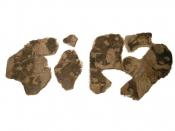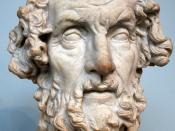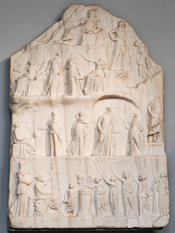Isabella Pignatello
When considering the qualities that contribute to positive relationships, you could come up with many virtues that would fit the bill. Care, honor, love trust, honesty, and selflessness are all important components of finding a balance, where it is possible, to live in peaceful coexistence with one another. However, respect is the most underappreciated virtue. Respect sits back patiently and waits to be recognized. Humanity as a whole overlooks the importance of respect in enabling individuals to live together harmoniously. Homer clearly illustrates the way people interact respectfully with each other and the world around them in his classical poem describing Achilles shield, whereas W.H. Auden's World War Two era poem on the same subject clearly conveys a lack of respect. The way in which this respectful environment is sustained in Homer's world, or lacking in Auden's world, is evident in the way people work, in the atmosphere in which the two images are set, and even in the tangible nature and surroundings.
In Homer's world people work with commitment, satisfaction, and a sense of community, whereas Auden illustrates a world where labor is forced and no sense of accomplishment is fulfilled. In Homer's depiction, the atmosphere in which the scene is set is very upbeat, filled with music and gusto, Auden on the other hand shows an atmosphere full of suffering, destitution and isolation. Nature in Homer's world embodies fertility, abundance and diversity, whereas Auden's rendition shows barrenness, impurity and artificiality.
A common overarching theme in these two pieces of literature is nature and the natural surroundings that make up the settings. In Homer's piece, several instances represent the idea of fertility. The quote; "He made on it a great vineyard heavy with clustersâ¦" (H561) is one good example where Homer explains...


